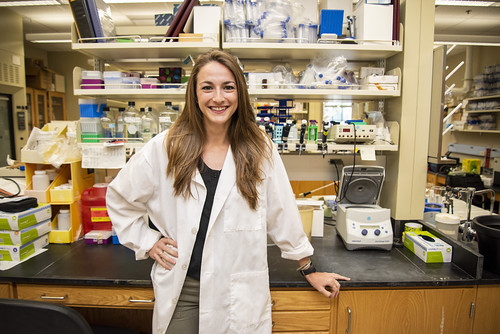Nature Knows and Psionic Success
God provides
Auburn University nutrition researchers investigate promising keys to unlocking the mysteries of Alzheimer’s disease

Font Size Alzheimer’s disease affects millions of lives around the world every year according to the 2018 World Alzheimer’s Report, but both the cause and cure to the disease remain a mystery to the medical field. Auburn University College of Human Sciences researchers are tapping into the study of food and diets to examine preventative measures, possible treatments and even potential cures to the disease. A promising avenue of research delves into the topic of meal-timing, which nutrition doctoral student Lauren Woodie studies in the lab of Associate Professor of Nutrition Mike Greene. The meal-timing principle explains how the time of day in which a person consumes food affects their metabolism. For example, eating very late at night may slow your nutrient uptake and lead to negative health effects. Circadian rhythm is this schedule by which the body’s internal clock is set. This rhythm keeps the peace in organs such as the liver, where the genes of the internal clock are regulated by nutrients and synchronized by the central clock in the brain. Researchers were surprised to find that the hippocampus, the brain’s center of memory, behaves in a similar fashion. So, the same principle applies—an irregular eating schedule or poor diet may have serious, lasting effects on memory. “When those two clocks are not working together, metabolic disruptions will happen. One clock remains set to the light, the other becomes set to food. A high-fat diet will disrupt the food regulated clock, and then you have this desynchronization, which is part of the development of metabolic diseases,” Woodie said. “Given the fact that the diet has such a big impact on the hippocampus and that circadian disruptions are a big part of Alzheimer’s disease, looking to see if Western diet-induced circadian disruptions can modulate some of the Alzheimer’s […]
Click here to view full article
